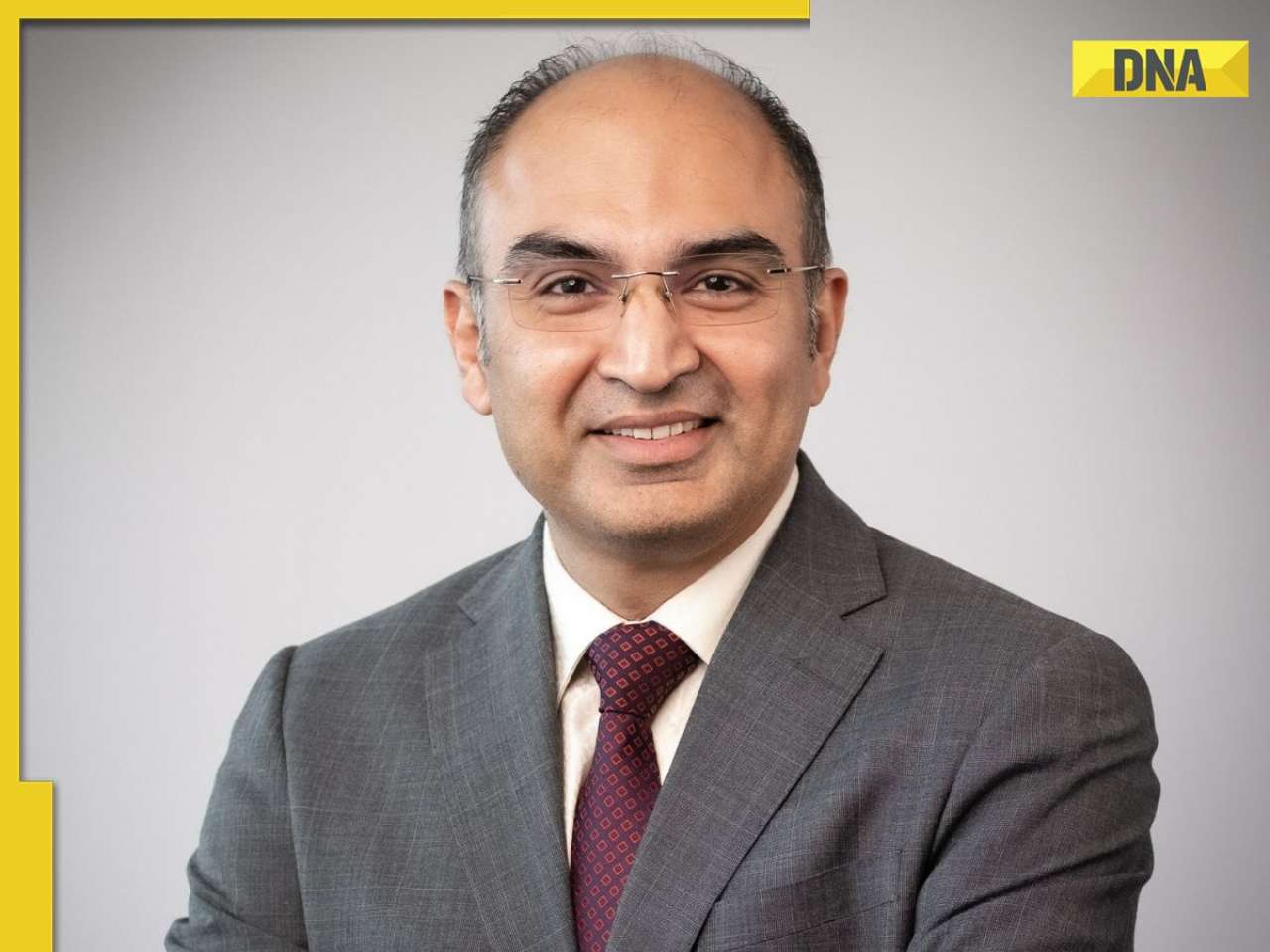Closer home there are many who are secretly battling their innate, powerful sexual desires.
What could be worse for Tiger Woods than a string of 'transgressions' behind closed doors, announcing themselves one tabloid headline at a time? The case of disappearing ads featuring him, or products endorsed by him being taken off the shelves?
Neither. For, there is a third option.
Enter the health expert: David Smallwood, addictions manager at London's Priory clinic, who pronounces the ace golfer a 'sex addict'.
There may not be enough proof to underscore the expert's pronouncement, but the recent string of revelations may have had Smallwood thinking aloud, for the developments do have the makings of a clinical diagnosis, however premature.
While Woods's extramarital sexual escapades have made headlines thanks to his celebrity, closer home there are many who are secretly battling their innate, powerful sexual desires. The kind that experts like Smallwood would call sex addiction.
The Diagnostic and Statistical Manual of Mental Disorders published by the American Psychiatric Association defines a sexaholic as a person who cannot resist impulses to engage in extreme acts of lewd sex, and spends an inordinate amount of time in obtaining sex, being sexual, or recovering from sexual experiences.
Varun B, in his late 40s, is a case in point. He has no qualms in confessing that he was a sex addict. When he was 11, he used to fondle his classmates and cousins' breasts. "I had sex with 72 girls in my first year of college," he claims.
When his wife was admitted to hospital with a critical illness, Varun had sex with his sister-in-law 20 times in the span of a week.
Rajan Bhonsle, head of the department of sexual medicine at the King Edward Memorial Hospital and Seth GS Medical College, says sexual addiction is common. "Anything becomes an addiction when it is beyond your control and becomes a pre-occupation, affecting your career, family, marriage, and money," he says. "In a month, I handle at least 7 to 10 cases of people who are sex addicts." Bhonsle says 80% approach him on their own, while 20% are brought to his clinic by parents, the spouse, or a relative.
The reasons that trigger sex addiction in an individual could range from low self-esteem to loneliness to depression to being brought up in a dysfunctional family. Another reason could be that the person has an "addictive personality to an extent that things are often beyond his control".
Experts observe that people who turn into sex addicts have a history of non-acceptance from family and peers. For them sex is an outlet to achieve instant gratification. "They are also pessimists and less likely to have a stable relationship because of their dissatisfaction with a single partner," says Seema Hingorrany, clinical psychologist.
Hingorrany also points out that at times, spouses leave their sexaholic partners for fear of contracting sexually transmitted disease.
Many women battle similar uncontrolled urges, though differently. While men are more open about their sexual yearnings, most women continue to repress their needs.
But 42-year-old businesswoman Archana Gupta, who has recently come out of her addiction with the help of therapy, is matter of fact about it. "For women, it is easier to find boyfriends than it is to find hashish," she says.
Having had a tough childhood followed by a broken marriage, Gupta says she was constantly yearning for love, nurturing, and, more importantly, validation. "For me, sex was a release and an escape from this bad phase of my life. Now, in retrospect, I think I was not a culprit but a victim."
Addiction to masturbation, sexual fantasies involving the opposite sex, and accessing sexually explicit literature and images for good long hours are a few tell-tale signs of a sex addict.
Varun, who has come out clean from his past, says that for him meditation and yoga did the trick. "I meditate twice a day and after that I experience a sense of calmness and self-control," he says. "I no longer sleep with guilt."
Says Hingorrany, "Sex addicts who are already suffering from depression apart from counselling also need medicines. They are often required to undergo cognitive behaviour therapy."
Bhonsle on the other hand suggests that it is important for a sex addict to not be quarantined but to socialise, even with the opposite sex, in order to overcome his/her addiction.
(Some names have been changed to protect identity)
![submenu-img]() Anant Raj Ventures into tier 2 and tier 3 cities, pioneering growth in India’s real estate sector
Anant Raj Ventures into tier 2 and tier 3 cities, pioneering growth in India’s real estate sector![submenu-img]() Sophie Turner reveals she wanted to terminate her first pregnancy with Joe Jonas: 'Didn't know if I wanted...'
Sophie Turner reveals she wanted to terminate her first pregnancy with Joe Jonas: 'Didn't know if I wanted...'![submenu-img]() Meet outsider who was given no money for first film, battled depression, now charges Rs 20 crore per film
Meet outsider who was given no money for first film, battled depression, now charges Rs 20 crore per film![submenu-img]() This is owner of most land in India, owns land in every state, total value is Rs...
This is owner of most land in India, owns land in every state, total value is Rs...![submenu-img]() Meet man who built Rs 39832 crore company after quitting high-paying job, his net worth is..
Meet man who built Rs 39832 crore company after quitting high-paying job, his net worth is..![submenu-img]() Meet woman who first worked at TCS, then left SBI job, cracked UPSC exam with AIR...
Meet woman who first worked at TCS, then left SBI job, cracked UPSC exam with AIR...![submenu-img]() Meet engineer, IIT grad who left lucrative job to crack UPSC in 1st attempt, became IAS, married to an IAS, got AIR...
Meet engineer, IIT grad who left lucrative job to crack UPSC in 1st attempt, became IAS, married to an IAS, got AIR...![submenu-img]() Meet Indian woman who after completing engineering directly got job at Amazon, then Google, Microsoft by using just...
Meet Indian woman who after completing engineering directly got job at Amazon, then Google, Microsoft by using just...![submenu-img]() Meet man who is 47, aspires to crack UPSC, has taken 73 Prelims, 43 Mains, Vikas Divyakirti is his...
Meet man who is 47, aspires to crack UPSC, has taken 73 Prelims, 43 Mains, Vikas Divyakirti is his...![submenu-img]() IIT graduate gets job with Rs 100 crore salary package, fired within a year, he is now working as…
IIT graduate gets job with Rs 100 crore salary package, fired within a year, he is now working as…![submenu-img]() DNA Verified: Is CAA an anti-Muslim law? Centre terms news report as 'misleading'
DNA Verified: Is CAA an anti-Muslim law? Centre terms news report as 'misleading'![submenu-img]() DNA Verified: Lok Sabha Elections 2024 to be held on April 19? Know truth behind viral message
DNA Verified: Lok Sabha Elections 2024 to be held on April 19? Know truth behind viral message![submenu-img]() DNA Verified: Modi govt giving students free laptops under 'One Student One Laptop' scheme? Know truth here
DNA Verified: Modi govt giving students free laptops under 'One Student One Laptop' scheme? Know truth here![submenu-img]() DNA Verified: Shah Rukh Khan denies reports of his role in release of India's naval officers from Qatar
DNA Verified: Shah Rukh Khan denies reports of his role in release of India's naval officers from Qatar![submenu-img]() DNA Verified: Is govt providing Rs 1.6 lakh benefit to girls under PM Ladli Laxmi Yojana? Know truth
DNA Verified: Is govt providing Rs 1.6 lakh benefit to girls under PM Ladli Laxmi Yojana? Know truth![submenu-img]() In pics: Taarak Mehta Ka Ooltah Chashmah actress Deepti Sadhwani dazzles in orange at Cannes debut, sets new record
In pics: Taarak Mehta Ka Ooltah Chashmah actress Deepti Sadhwani dazzles in orange at Cannes debut, sets new record![submenu-img]() Ananya Panday stuns in unseen bikini pictures in first post amid breakup reports, fans call it 'Aditya Roy Kapur's loss'
Ananya Panday stuns in unseen bikini pictures in first post amid breakup reports, fans call it 'Aditya Roy Kapur's loss'![submenu-img]() Remember Harsh Lunia? Just Mohabbat child star, here's how former actor looks now, his wife is Bollywood's popular...
Remember Harsh Lunia? Just Mohabbat child star, here's how former actor looks now, his wife is Bollywood's popular...![submenu-img]() Mother's Day 2024: Bollywood supermoms who balance motherhood, acting, and run multi-crore businesses
Mother's Day 2024: Bollywood supermoms who balance motherhood, acting, and run multi-crore businesses![submenu-img]() Rocky Aur Rani's Golu aka Anjali Anand shocks fans with drastic weight loss without gym, says fitness secret is...
Rocky Aur Rani's Golu aka Anjali Anand shocks fans with drastic weight loss without gym, says fitness secret is...![submenu-img]() Haryana Political Crisis: Will 3 independent MLAs support withdrawal impact the present Nayab Saini led-BJP government?
Haryana Political Crisis: Will 3 independent MLAs support withdrawal impact the present Nayab Saini led-BJP government?![submenu-img]() DNA Explainer: Why Harvey Weinstein's rape conviction was overturned, will beleaguered Hollywood mogul get out of jail?
DNA Explainer: Why Harvey Weinstein's rape conviction was overturned, will beleaguered Hollywood mogul get out of jail?![submenu-img]() What is inheritance tax?
What is inheritance tax?![submenu-img]() DNA Explainer: What is cloud seeding which is blamed for wreaking havoc in Dubai?
DNA Explainer: What is cloud seeding which is blamed for wreaking havoc in Dubai?![submenu-img]() DNA Explainer: What is Israel's Arrow-3 defence system used to intercept Iran's missile attack?
DNA Explainer: What is Israel's Arrow-3 defence system used to intercept Iran's missile attack?![submenu-img]() Sophie Turner reveals she wanted to terminate her first pregnancy with Joe Jonas: 'Didn't know if I wanted...'
Sophie Turner reveals she wanted to terminate her first pregnancy with Joe Jonas: 'Didn't know if I wanted...'![submenu-img]() Meet outsider who was given no money for first film, battled depression, now charges Rs 20 crore per film
Meet outsider who was given no money for first film, battled depression, now charges Rs 20 crore per film![submenu-img]() Meet actress who quit high-paying job for films, director replaced her with star kid, had no money, now lives in...
Meet actress who quit high-paying job for films, director replaced her with star kid, had no money, now lives in...![submenu-img]() This star kid's last 3 films lost Rs 5000000000 at box office, has no solo hit in 5 years, now has lost four films to...
This star kid's last 3 films lost Rs 5000000000 at box office, has no solo hit in 5 years, now has lost four films to...![submenu-img]() Meet actress viral for just walking on screen, belongs to royal family, has no solo hit in 15 years, but still is…
Meet actress viral for just walking on screen, belongs to royal family, has no solo hit in 15 years, but still is…![submenu-img]() This is owner of most land in India, owns land in every state, total value is Rs...
This is owner of most land in India, owns land in every state, total value is Rs...![submenu-img]() Blinkit now gives free dhaniya with veggie orders, thanks to Mumbai mom
Blinkit now gives free dhaniya with veggie orders, thanks to Mumbai mom![submenu-img]() Meet man, an Indian who entered NASA's Hall of Fame by hacking, earlier worked on Apple's...
Meet man, an Indian who entered NASA's Hall of Fame by hacking, earlier worked on Apple's...![submenu-img]() 14 majestic lions cross highway in Gujarat's Amreli, video goes viral
14 majestic lions cross highway in Gujarat's Amreli, video goes viral![submenu-img]() Here's why Isha Ambani was not present during Met Gala 2024 red carpet
Here's why Isha Ambani was not present during Met Gala 2024 red carpet























































)
)
)
)
)
)